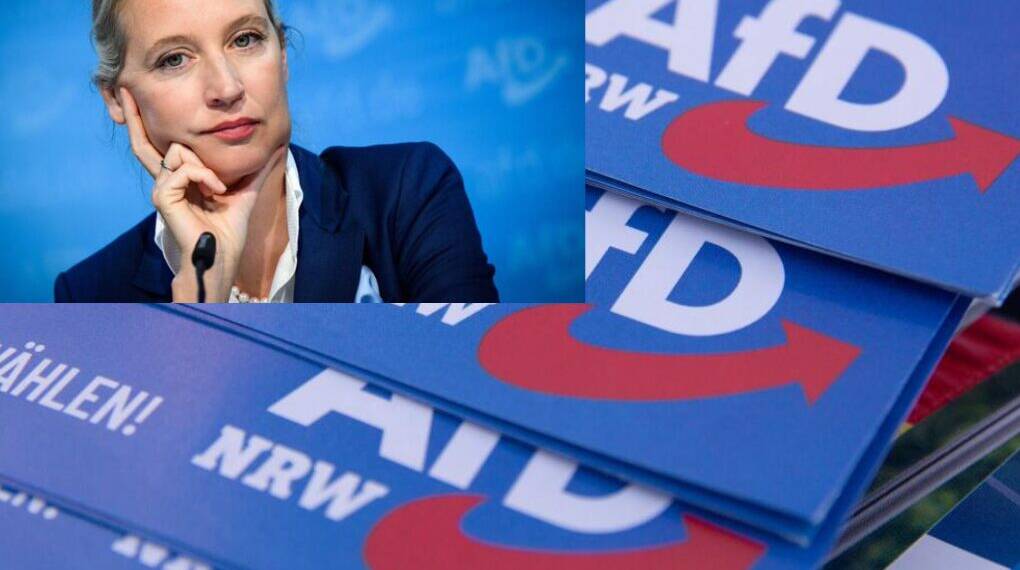Germany is facing a political storm that can no longer be brushed aside. Within just thirteen days, seven members of the Alternative for Germany (AfD) — including four candidates and two reserve candidates — have died suddenly in North Rhine-Westphalia, the country’s most populous state. A seventh name remains unconfirmed, but the toll is rising.
Authorities insist these deaths were due to “natural causes.” The media repeats: “No foul play suspected.” But with so many sudden deaths, all linked to one political party, just weeks before crucial local elections, the question arises: how many coincidences can one party survive before Germans demand real answers?
A Growing List of Tragedies
The names of the deceased tell their own story:
Ralph Lange, gone on August 28th.
Wolfgang Klinger, struck down soon after.
Stefan Berendes died unexpectedly.
Wolfgang Seitz collapsed from a heart attack.
René Herford, reserve candidate, kidney failure.
Patrick Tietze, another reserve, committed suicide.
Plus, one more whose name is not yet confirmed.
All within two weeks. All before the election.
The official narrative may call it a coincidence, but millions of Germans are left unconvinced.
AfD: A Party the Establishment Fears
The AfD is not a fringe movement. In the February 2025 federal election, it secured over 20% of the national vote, making it Germany’s second largest and, as per recent survey, its largest party in Germany. In some eastern states, nearly one in three voters cast their ballots for AfD. These are not extremists — they are ordinary Germans: workers, pensioners, families, and small business owners demanding change.
And yet, instead of being treated as a legitimate democratic force, AfD faces constant suppression.
In May 2025, the German government officially classified AfD as a “confirmed right-wing extremist endeavor.” This label allows security agencies to surveil members, restrict funding, harass supporters, and even dismiss civil servants linked to the party.
Critics ask: Is this democracy? Or is it political warfare waged by the establishment against its opponents?
“Statistically Almost Impossible”
AfD co-leader Alice Weidel has called the string of deaths “statistically almost impossible.” Economist Stefan Homburg has echoed her concerns. Even Elon Musk warned that if Germans are denied the right to vote for AfD, it would mean “the end of Germany.”
But despite the growing unease, authorities continue to dismiss the matter as a coincidence.
A Party Under Siege
These deaths are just the latest chapter in a long campaign of pressure against AfD:
Candidates like Joachim Paul have been barred from elections for supposedly lacking “loyalty to the constitution.”
AfD rallies have faced attacks, fake death notices, and threats of violence.
AfD-aligned publications such as Compact are repeatedly targeted for bans.
This is not democracy as it should function. This is lawfare and intelligence warfare — an attempt to crush political opposition through fear, intimidation, and institutional power.
The Voice of Ordinary Germans
The AfD represents more than a political party. It is the voice of millions who feel betrayed by Brussels, ignored by Berlin, and silenced by the media elite.
Its supporters want Germany to reclaim its sovereignty, secure its borders, protect its national identity, and restore its industrial strength — the same industrial strength that once made Germany the automobile champion of the world.
As many AfD supporters argue, their only “fault” is wanting to make Germany great again.
A Dangerous Precedent
History teaches us that democracy dies not when people vote for parties the establishment dislikes, but when those people are no longer allowed to vote freely.
If the state and its institutions can silence AfD today, then tomorrow it can silence anyone.
The sudden deaths of seven AfD candidates cannot simply be waved away. These were not statistics. They were fathers, husbands, friends, and public servants. Their families deserve answers, not dismissals. The German people deserve truth, not silence.
The Real Question
At the heart of this crisis lies a question every German must ask: Why is it always AfD?
Why are their candidates dying?
Why are their ballots challenged?
Why are their voices suppressed?
Coincidence? Or something far darker?
Until these questions are answered, the legitimacy of Germany’s democracy will remain in doubt. Because democracy does not end when people vote for AfD… it ends when they are told they cannot.








